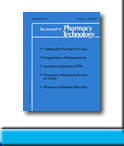 |
 |
RHABDOMYOLYSIS DUE TO
COMBINED THERAPY WITH CERIVASTATIN AND DICLOFENAC
Vered
Schechner, Tiberiu Hershcovici, and Yitzhak Beigel
To request full article click here.
OBJECTIVE: To describe the occurrence of severe rhabdomyolysis and acute renal failure in a patient treated concomitantly with cerivastatin and diclofenac.
CASE SUMMARY: A 73-year-old white man with mild chronic renal failure, treated with cerivastatin for hypercholesterolemia, received intramuscular injections of diclofenac for low-back pain. A few days later, severe muscle weakness and acute renal failure developed. Laboratory tests confirmed severe rhabdomyolysis. Diclofenac and cerivastatin were discontinued, and treatment with forced diuresis and urine alkalinization was started. Twenty-four days later, serum creatine phosphokinase and urinary function returned to baseline, and the muscle weakness improved.
DISCUSSION: Rhabdomyolysis is a well-known adverse effect of statins. According to recent reports, it occurs more frequently with cerivastatin than with other statins. Nevertheless, the interaction between cerivastatin (or other statins) and diclofenac as a trigger for rhabdomyolysis has never been reported.
CONCLUSIONS: Coadministration of diclofenac (and perhaps other nonsteroidal antiinflammatory drugs) with cerivastatin (and perhaps other statins) should be done cautiously, especially in the presence of renal failure, under close monitoring of renal function and muscle enzyme levels.
J Pharm Technol 2003;19:219-21.
To request full article click here.
|
|
|
||
|

